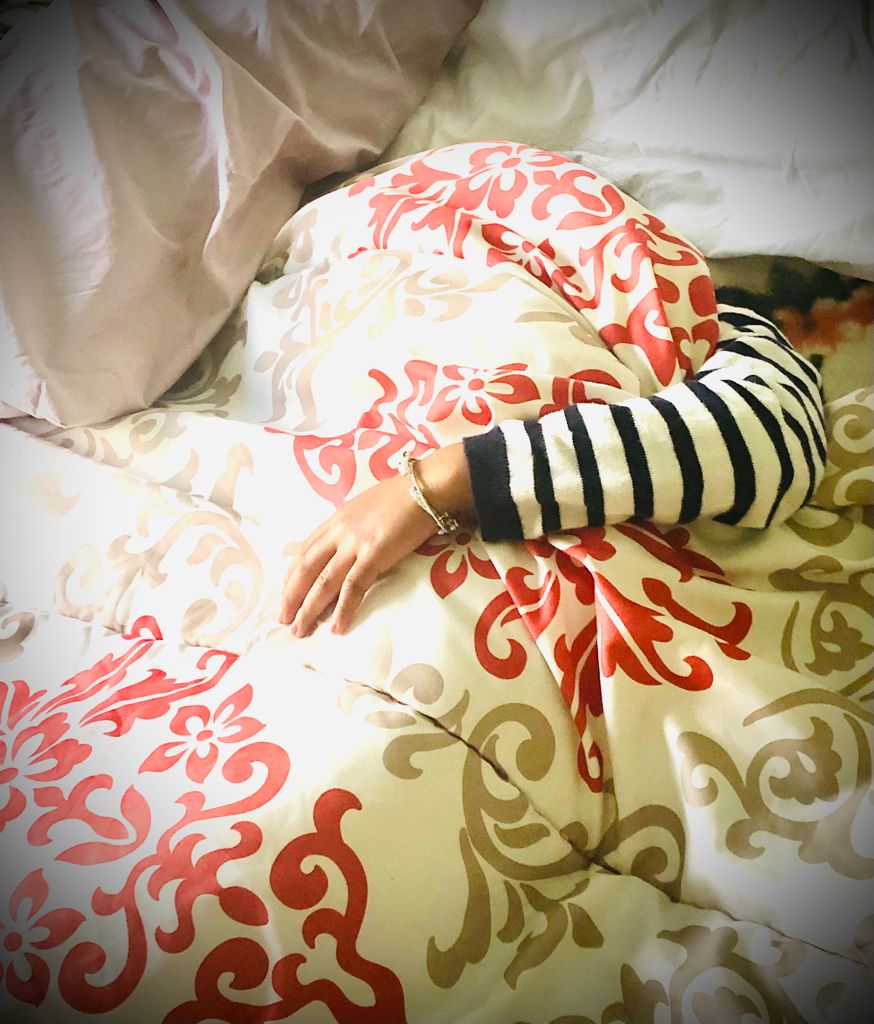Sleep is an important biologic process. It is critical to optimal health and bodily functions. In my last post, I discussed the duration of sleep needed to maintain adequate health and that it depends upon one’s age.
What happens if one doesn’t sleep enough?
Sufficient duration, high quality, proper timing and regularity, and the absence of sleep disturbances/disorders characterize a healthful sleep.
Isn’t it astonishing that despite the significance of high quality sleep, up to 70 million people in the US and ~45 million people in Europe have a chronic sleep disorder.
Insufficient sleep has severe adverse impacts on our daily performance. For example,
1. About 20% of the serious injuries resulting from car crashes can be associated with driver sleepiness, independent of the effects of alcohol.
2. People with sleep disorders are seven times more likely to have a work-related accident as compared to healthy sleepers.
3. Data from healthcare is even more astounding: Nurses that work 12.5 hours shifts commit three times more medical errors than nurses working 8.5 hours shifts.
Furthermore, unhealthy sleeping has both short-term and long-term health consequences.
Over short term it causes stress, emotional distress, psychosocial issues or vague physical complaints such as fatigue, pain, malaise.
However, long-term health effects of sleep disturbances include high blood pressure, increased risk of lipid or cholesterol disorders. It also can result in heart disease, excessive weight gain or obesity, and type 2 diabetes. Additionally, it can increase the risk of certain cancers and even death. Sleep disruptions also worsen gastrointestinal health such as exacerbate IBS or IBD, increase the severity of acid reflux, and alter bowel habits.
Now let me change gears, and enlist a series of research based guidelines, to enable and encourage sleep optimization. Interestingly, these strategies are deceptively simple. When implemented together, these tips are potentially, very powerful and effective.
1. Substance-free sleep is maximally restful: We rely so much on caffeine to arouse us in the morning. In the evening, we use alcohol or potentially other sedating drugs to tranquilize our busy minds. Caffeine use establishes a vicious cycle of sleep disruption. This leads to more exhaustion, causing us to consume more caffeine and thus perpetuating poor sleep and intensifying our caffeine consumption.

NO ALCOHOL/COFFEE
Similarly, although alcohol may cause us to fall asleep faster, it disturbs the quality and stages of sleep. It can also impair critical sleep dependent processes such as strengthening our memory.
2. Technology and light emissions are double whammy to our sleep: Multiple studies prove that exposure to sustained period of darkness is critical to our health. Dimmer light signals our brain to release a natural chemical called melatonin. This makes us sleepy. The light from electronic devices such as iPads, iPhones, TVs and computers can suppress the release of melatonin. Furthermore, it is not only the light that is problematic. Watching programs that are stressful or arousing can add to sleep disruption. Therefore, practicing an electronic curfew for 30-60 minutes before target bedtime is an effective intervention to improve sleep.
3. Avoid Naps: Daytime naps are largely a luxury for most of us. These do reduce our ability to have a restful and timely sleep. If one must take a nap, it should be before 3 PM and ideally for just 20 minutes or less.

4. Anxiety and worrying cause poor sleep: It is common for some of us that when our heads finally hit the pillow, we start thinking and processing our days. This mulling over the day at bedtime is unhealthy. In order to evoke positive emotion brain circuitry, practice gratitude and happiness imagery. Recall three things from the day that you are thankful for. Reimagine, three incidents that made you happy. Try to picture the event and relive the experience.
5. Be consistent in a bedtime routine: Awake time is usually fixed depending upon our work or school schedules. Thus in order to get adequate sleep, we must fix the time we start our slumber. If you are in a habit of sleeping late, every 3-4 days spring your bedtime forward by 20 minutes. If you try to make larger adjustments, you will often find yourself lying in bed awake. Body prefers to have a set routine. So it is prudent to keep wake times also very consistent across weekdays and weekends.
6. Have realistic expectations: Few people get into bed and quickly fall asleep. Majority however, typically requires 10-30 minutes to sleep after the lights are turned off. Thus having transitional strategies may help to fall and stay asleep such as a pre-bed warm shower, positive thoughts or journaling, calming natural music and so forth.
7 RISE-UP routines: It is normal for most of us to feel groggy, have sore shoulders and heavy eyes when we first wake up. These unpleasant feelings are not a sign that we should stay in bed longer. These feelings wane rather quickly usually in 5-20 minutes. Thus it is recommended to have a RISE-UP routine:
R: Refrain from snoozing
I: Increase activity
S: Shower or wash face or hands
E: Expose yourself to sunlight, such as, by opening curtains and looking out
U: Upbeat music
P: Phone a friend or talk to someone.
You can personalize the routine according to what works for you. The goal is to emphasize the body to get out of bed and be awake!
I hope these tips help you improve your sleep routines, and quality and take you on the path to wellness, and sound health.
Finally, I would like to end the post by this quote from Rita Rudner, an American Comedian:
“I love to sleep. Do you? Isn’t it great? It really is the best of both worlds. You get to be alive and unconscious.”
Do you have sleep problems or issues? What strategies have worked for you to improve your siesta time? I welcome your thoughts, feedback or comments on this post? What additional health topics would you want me to talk about?
Thank you very much for listening/reading. Keep smiling. Please subscribe, share and comment.

